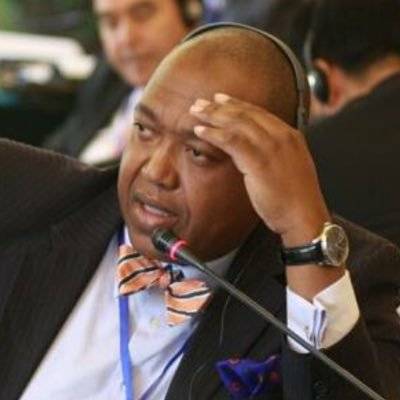The civil war in Yemen has led to incredible human suffering, described by the UN as “the world’s worst humanitarian crisis.” While the military involvement of the Saudi Arabia-led coalition against the Iran-backed Houthi rebels tends to attract most media attention, the plight of Yemeni refugees is largely unknown to the outside world.
The conflict has led to widespread internal displacement of people over the past three years. The geographical location of their country makes it very difficult for Yemenis to escape the ongoing conflict by fleeing overseas. This adds to their predicament.
Some people, however, have managed to leave Yemen by air, the current challenges in doing so notwithstanding. They have ended up in different parts of the world, with many applying for political asylum immediately at the port of entry.
Read: Yemen peace deal hangs in the balance
Once such place is the South Korean province of Jeju, an island located in the Korea Strait. Tourist visas valid for up to three months are available free of charge on arrival, a system introduced in 2001 in a bid by the government in Seoul to encourage tourists to visit the island.
Yemeni asylum seekers have all entered South Korea in this way, prompting a huge backlash from South Koreans at what they believe are “illegal refugee applications”. According to the Financial Times, more than half a million South Koreans have signed a petition to revoke Yemenis’ refugee status, a development which on Friday prompted the government in Seoul to announce plans to tighten the country’s Refugee Act; since 2013 the legislation has provided for basic support to be given to asylum seekers.
This action has, in turn, attracted undue scrutiny of South Korea’s apparent anti-immigration attitude and its treatment of migrants and refugees. It has also exposed a dark, “xenophobic” side to South Korean society that belies its usual benign image.
Read: South Korea changes refugee laws after ‘influx’ of 552 Yemen
South Korea continues to benefit from the global market for its exports. Goods produced in the country fill households and businesses around the world. Soo-Kyoum Kim, director of the semiconductor research programme at International Data Corporation (IDC) Korea, noted last week that South Korea has 17 per cent of the global semiconductor market and 64 per cent of the memory chip market. South Korean products also contribute to global e-waste, described as “electronic pollution” from scrap appliances and products.
“Millions of tons of e-waste disappears from the developed world every year and continues to reappear in developing countries, despite international bans,” alleged to Luke Upchurch of Consumers International, which represents more than 220 consumer groups in 115 countries.
#YemeniCrisis
Critics continue to argue that countries like South Korea cannot benefit from global business and yet remain indifferent to the effects of conflicts around the world. In return for such economic benefits, they insist, Seoul must take its international socio-political responsibilities seriously.
The world’s “worst humanitarian crisis” has thrown up numerous challenges for the global community, at the top of which has to be the issue of refugees and displaced persons. Those refugees who have been able, at unknown cost and hardship, to get out of Yemen and escape from the bitter fighting in their country are anything but illegitimate, regardless of how they might have entered South Korea. The government in Seoul must respect them for this and honour their refugee status. Anything less and it will be dishonouring its own position as a member of the United Nations.
The views expressed in this article belong to the author and do not necessarily reflect the editorial policy of Middle East Monitor.


![A child is seen outside a makeshift tent at a Yemeni refugee camp [Sami Alramyan/Facebook]](https://i0.wp.com/www.middleeastmonitor.com/wp-content/uploads/2018/06/yemeni-refugee11742698_10152863714961739_1194011007157264465_n.jpg?fit=1200%2C800&ssl=1)









